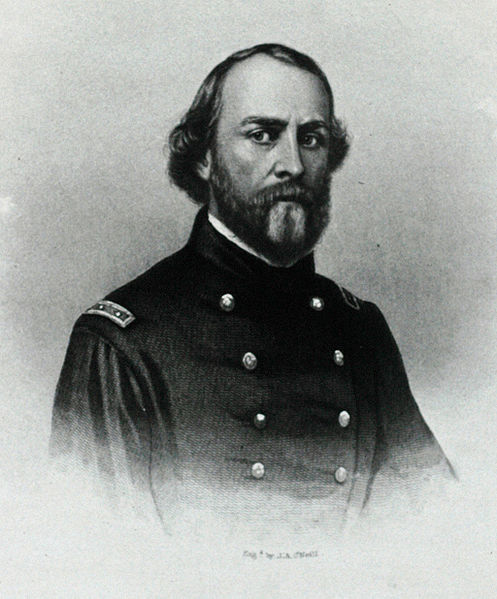The American Civil War began on April 12, 1861 which was 150 years ago today. It's not really a celebratory date, but definitely one to remember as it is a part of American history. So we searched through some Rhode Island influence in The Civil War and found Sullivan Ballou's "Letter To Sarah."
Sullivan Ballou was born the son of Hiram and Emeline Ballou in Smithfield, RI. He lost both of his parents at a young age and was forced to fend for himself. In spite of this, he worked his way through Brown University and went on to study law at the National Law School, in Ballston, NY. He was admitted to the Rhode Island bar and began to practice in 1853. Ballou married Sarah Hunt Shumway on October 15, 1855. They had two sons, Edgar and William. Ballou devoted his brief life to public service. Shortly after being admitted to the bar, he was elected to the Rhode Island House of Representatives, where he served as a clerk, and later as the speaker. He was a staunch supporter of Abraham Lincoln. When war broke out, Ballou immediately left what appeared to be a promising political career and volunteered for military service with the 2nd Rhode Island Infantry. In addition to his combat duties, he served as the Rhode Island militia’s judge advocate. In the now famous letter to his wife Sarah of July 14th, 1861, Ballou attempted to crystallize the emotions he was feeling: worry, fear, guilt, sadness and, most importantly, the pull between his love for her and his love of country. This letter was featured prominently in the Ken Burns documentary The Civil War, where it was paired with Jay Ungar’s musical piece “Ashokan Farewell” and read by Paul Roebling.
One week after his letter was written, and before Sarah had a chance to read it, on July 21st 1861, Ballou was mortally wounded at The First Battle of Bull Run.


